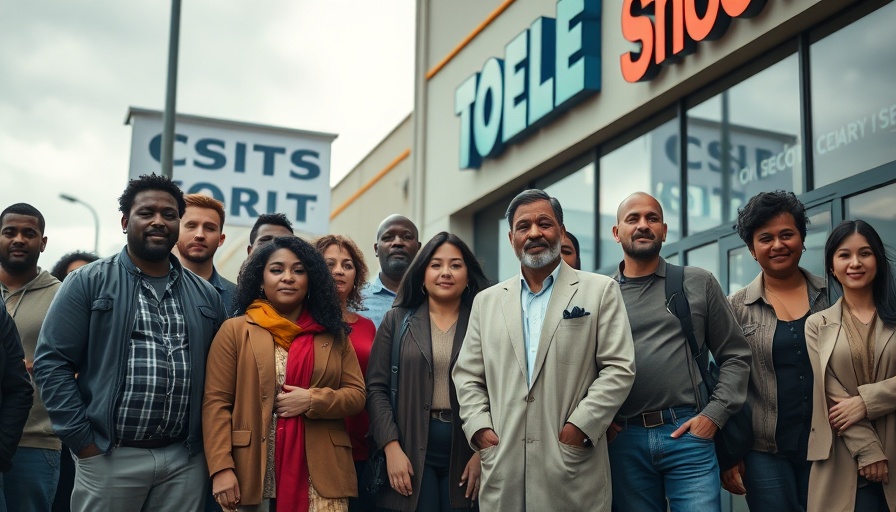
Unpacking the Allegations: Target and Law Enforcement's Role
In the wake of recent incidents in St. Paul, Minnesota, a group is vocally demanding that Target corporations issue an apology regarding their handling of a situation involving two men who were mistakenly reported as being armed. This incident has raised substantial concerns not only regarding corporate responsibility in reporting but also about the larger implications of police involvement and false reporting in the community.
The Implications of False Reporting
False allegations can have dire consequences, particularly in communities that are already grappling with issues of trust in law enforcement. The recent incident not only casts a shadow over Target's customer service practices but also raises questions about how police departments—including the St. Paul Police Department—handle such reports and the protocols in place to verify their credibility before taking action.
Community Reactions: Voices Amplifying the Call for Accountability
The outpouring of support from community groups emphasizes a mixed sentiment towards Target’s role in the false reporting incident. Voices within the public have pointed out that while businesses have a right to protect their property, they also have a profound responsibility to ensure that their actions do not unjustly harm individuals. Public trust is crucial, and as many community activists insist, promoting safety should not come at the expense of racial equity and justice.
Broader Concerns: Police Protocols and Community Trust
This incident has sparked a broader debate about police protocols when responding to reports made by private establishments. Law enforcement agencies are faced with the task of balancing public safety with ensuring that they do not overact based on incomplete or misleading information. As the St. Paul Police Department reassesses its protocols regarding such cases, the community watches closely, hoping for a resolution that reflects an understanding of social equity and accountability.
Historical Context of Racial Profiling and Misinformation
The repercussions of racial profiling and misinformation are not new. Historically, communities of color have faced systematic challenges, including being wrongfully accused and targeted based on assumptions and fear. This incident parallels several high-profile cases that ignited public movements, pushing for police reform and transparency. Alluding to recent legislative actions that address police reform could shape the narrative and drive systemic change in how public servants engage with communities.
Future Predictions: What Comes Next for Target and the St. Paul Police?
Looking ahead, the resolution of this incident could dictate not only corporate policing protocols but also influence legislative changes regarding public-private partnerships in security. As stakeholders from various levels—including congressional representatives—begin to weigh in on the discourse around public health and safety, the incident might prompt broader scrutiny toward how corporate policies interact with governmental authority. Companies may be encouraged to adopt more stringent internal measures that aim to reduce false reporting, doing so in alignment with recent community dialogues surrounding equity and justice.
Actionable Steps: How Individuals Can Engage
For community members and concerned citizens, the call to action is deeper than just reparation discussions. Engaging with local government and participating in community forums can amplify voices that advocate for both corporate and police accountability. With ongoing dialogues, citizens can demand transparency, pushing for legislation that ensures corporations like Target contribute to community safety without fueling racial bias.
Conclusion: A Call for Vigilance and Advocacy
The demands for accountability in this case underscore the necessity for vigilance in holding corporations and law enforcement agents to a higher standard. As the situation continues to evolve, advocacy for fair treatment and systemic change remains paramount. By staying engaged with local governance and larger societal movements, individuals can contribute to fostering an environment where justice and equality thrive in their communities.
 Add Row
Add Row  Add
Add 




Write A Comment